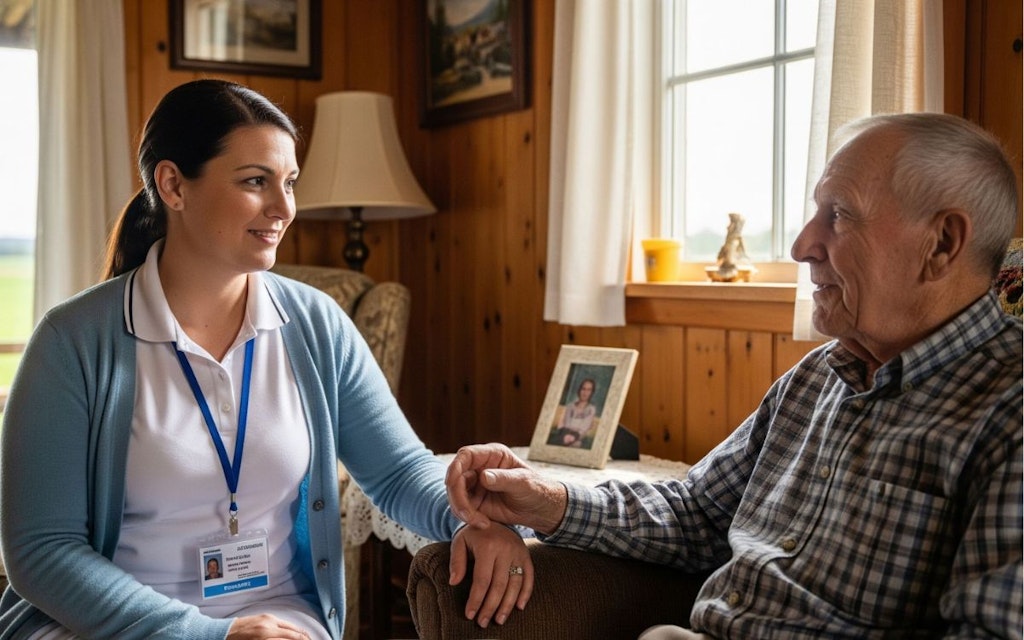Clinical placement program expands to boost rural aged care workforce
Last updated on 4 September 2025

A clinical placement program designed to address workforce shortages in Queensland’s rural aged care sector is expanding, offering third-year nursing students a pathway to careers as registered nurses (RNs).
Developed through a collaboration between Lutheran Services and the University of Sunshine Coast (UniSC), the initiative provides intensive training to prepare students for the complexities of aged care.
Initially launched in 2022 at Cooinda Aged Care in Gympie, the program has grown to include Orana Aged Care in Kingaroy, Immanuel Gardens on the Sunshine Coast, St Paul’s in Caboolture, and Zion in Nundah.
“We are excited to introduce the first two participants in the Transition to Practice Program to Orana Aged Care in Kingaroy and expand our current program operating at four other Lutheran Services sites,” said Stephanie Wilson, Regional Manager at Lutheran Services.
Since its inception, the program has supported 63 graduates, with over half securing RN positions within Lutheran Services’ facilities. The 2025 cohort, commencing in June, will be the largest yet, with 28 students across five of the organisation’s 11 aged care sites. “This year we expect to have completed more than 90 total placements since 2022,” Mrs Wilson noted.
The two-month program focuses on practical skills, including dementia care, fall prevention, and end-of-life care, under the guidance of experienced geriatric nurses and UniSC clinical facilitators.
“Upon completion of the program, the graduates will be ready for their registration as RNs and to join the workforce,” Mrs Wilson explained.
Rahul Taneja, a 2024 UniSC graduate, completed his placement at Cooinda Aged Care and now works there full-time. Reflecting on his experience, he said,
“Joining the program was the best decision I could have made because I received more hands-on experience in aged care in a short time than other nursing students.”
Mr Taneja, who transitioned from hospitality during COVID lockdowns, is now exploring palliative care through a pilot study. He highlighted the program’s supportive environment: “Everyone at Cooinda was very supportive of me as a new graduate. I felt I could ask any questions of the team and my managers.”
The initiative aligns with evolving perceptions of aged care nursing.
“Aged care was once seen as being a place where RNs went to retire, but this has changed. The sector is now recognised for providing quality career paths with opportunities for complex chronic disease management and supporting mental health issues with a holistic approach,” Mrs Wilson stated.
The program’s expansion reflects a commitment to addressing workforce challenges in rural aged care through targeted education and mentorship. Lutheran Services plans to further extend the initiative across its Queensland sites, maintaining its partnership with UniSC to build a skilled nursing workforce equipped to meet the needs of older Australians.